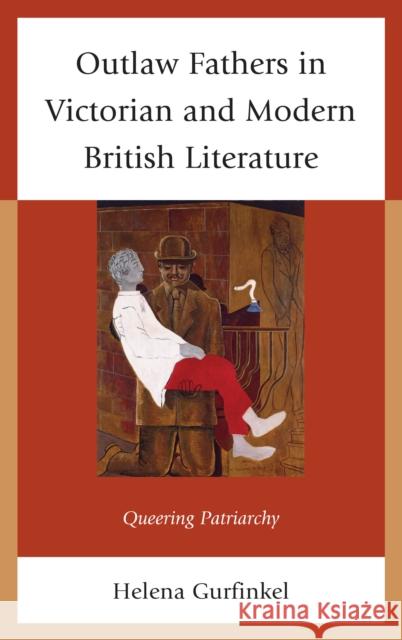Outlaw Fathers in Victorian and Modern British Literature: Queering Patriarchy » książka
Outlaw Fathers in Victorian and Modern British Literature: Queering Patriarchy
ISBN-13: 9781611476378 / Angielski / Twarda / 2014 / 236 str.
Outlaw Fathers in Victorian and Modern British Literature: Queering Patriarchy
ISBN-13: 9781611476378 / Angielski / Twarda / 2014 / 236 str.
(netto: 429,13 VAT: 5%)
Najniższa cena z 30 dni: 446,92
ok. 22 dni roboczych.
Darmowa dostawa!
Outlaw Fathers in Victorian and Modern British Literature: Queering Patriarchy traces the representations of outlaw fathers, or queer patriarchs, and their relationships with their queer sons, in a particular literary tradition: mid-to-late-Victorian and twentieth-century British fiction and memoir. Specifically, I look at such representations in Anthony Trollope s Doctor Thorne (1858) and The Prime Minister (1875-76) (while also drawing on An Autobiography (1883) and The Duke s Children (1880)); Samuel Butler s The Way of All Flesh (published in 1901), Henry James s The Lesson of the Master (1888), J. R. Ackerley s My Father and Myself (written in the 1930s and published in 1968), E. M. Forster s Little Imber (1961) (with an occasional detour into The Longest Journey (1907), Howards End (1909), and Maurice (published in 1971)), and Alan Hollinghurst s The Spell (1998). In the coda, I consider the implications of including transgender, transnational female-to-male fathers of color in the ranks of queer patriarchy and discuss two contemporary novels, Jackie Kay s Trumpet (1998, Scotland) and Patricia Powell s The Pagoda (1998, Jamaica and the United States), as well as briefly an episode an episode of the television show The L-Word (2008) and the documentary U-People (2007). The term queer patriarchy has two components. The first one is a non-traditional, primarily but not exclusively non-heterosexual, pervasively present, and culturally important, paternal subjectivity. The second one is the bond between such queer paternal figures and their sons, biological and non-biological. This study pays attention primarily to the relationship between psyche, language, and ideology, but it will join a larger conversation about the changing roles of men in general and fathers in particular, which is taking place outside of the field of literary studies."











